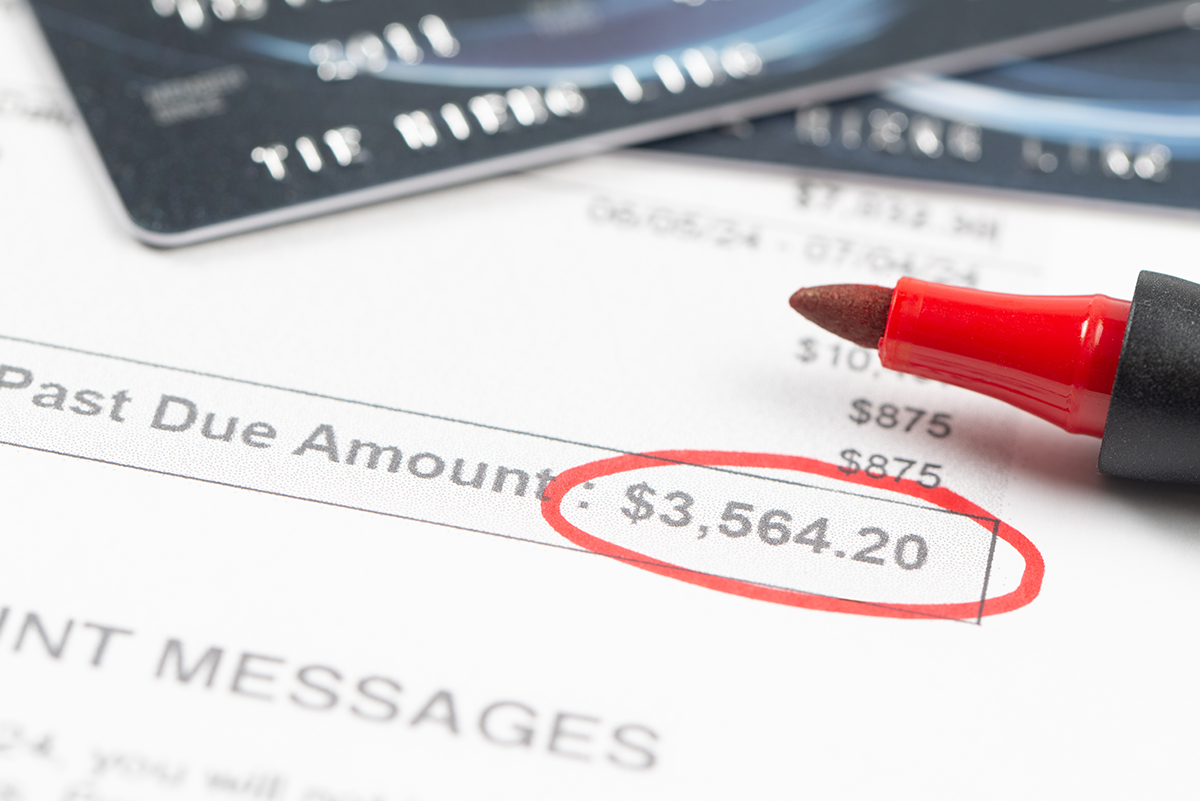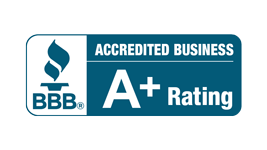Risky Moves That Could End in Bankruptcy
Bankruptcy doesn’t happen overnight. It’s often the result of a series of small, seemingly harmless financial decisions that snowball over time. One missed payment here, a risky investment there, and suddenly, you find yourself struggling to stay afloat.
In fact, studies show that a significant number of personal bankruptcies are avoidable if only people had recognized the warning signs earlier. Here are some of the most common decisions that could leave you filing for bankruptcy.
1. Overspending Without a Budget
It’s easy to lose track of where your money goes when you don’t have a clear plan in place. Living without a budget often leads to spending more than you earn, especially when you’re swiping credit cards or relying on loans to fund everyday expenses. Over time, this habit creates a dangerous cycle of debt that can be difficult to escape.
Many people fall into the trap of lifestyle inflation, earning more and immediately upgrading their spending to match, without thinking about saving or investing for the future. Without realizing it, they’re walking a financial tightrope, one unexpected expense away from disaster.
Bankruptcy filings totaled 40,271 in November 2024, a 6% increase from the November 2023 total of 37,907. [1]
How to Avoid It
Start by tracking your income and expenses. Create a realistic budget that covers your essentials first, housing, utilities, and food, and then allocates money for savings and debt repayment. Limit discretionary spending and regularly review your budget to stay on track.
2. Ignoring Debt Repayments
Debt can be manageable when handled responsibly, but ignoring it can quickly lead to financial disaster. Skipping payments or only paying the minimum on credit cards and loans allows interest and fees to pile up, turning small debts into overwhelming burdens. Over time, missed payments damage your credit score, limit your borrowing options, and increase the risk of legal action from creditors.
Many people delay addressing their debts, hoping the problem will somehow resolve itself. Unfortunately, procrastination only makes things worse. Ignored debts can lead to wage garnishments, asset seizures, and bankruptcy.
How to Avoid It
Stay proactive about your debt. Prioritize repayments by creating a plan, whether that’s the debt snowball method (tackling smaller debts first) or the avalanche method (focusing on high-interest debts). Set reminders for due dates, automate payments when possible, and avoid taking on new debt unless absolutely necessary.

3. Relying on Loans For Non-Essential Spending
It’s tempting to take out loans or swipe credit cards to fund vacations, luxury purchases, or impulse buys. But relying on borrowed money to maintain a lifestyle you can’t truly afford is a fast track to financial trouble. High-interest personal loans or credit card balances can accumulate quickly, making it harder to keep up with payments and pushing you deeper into debt.
This pattern often creates a false sense of security, until repayments become overwhelming and you’re faced with mounting financial pressure. Over time, what started as “a little extra help” can spiral into an unsustainable debt load.
How to Avoid It
Differentiate between needs and wants. If you can’t pay for something in cash or from your savings, it’s worth reconsidering whether you really need it. Use loans strategically for investments in education, homeownership, or business rather than for short-term gratification. And if you must borrow, make sure you fully understand the repayment terms and have a solid plan in place.
4. Neglecting Emergency Savings
Unexpected events are part of life, whether it’s a sudden job loss, medical emergency, car repair, or a major home expense. When you don’t have an emergency fund in place, you’re forced to rely on high-interest credit cards, personal loans, or even borrowing from friends and family. Over time, this can snowball into an overwhelming debt burden, pushing you closer to a financial crisis or even bankruptcy.
A lack of emergency savings means you’re financially vulnerable. Just one unexpected bill can disrupt your entire budget. For many people, it leads to missed payments on essential expenses like rent or utilities, late fees, and increased debt loads.
How to Avoid It
Start by building a dedicated emergency fund, even if you can only save a small amount at first. Aim for at least three to six months’ worth of essential living expenses. Keep these funds in an easily accessible account, like a high-yield savings account, separate from your daily spending account to avoid the temptation to dip into it unnecessarily.
5. Co-Signing Loans Without a Backup Plan
Co-signing a loan might seem like a kind gesture, but it comes with serious financial risks. As a co-signer, you’re equally responsible for the debt. If the primary borrower misses payments or defaults, lenders will hold you accountable. This can hurt your credit score, increase your debt load, and limit your ability to secure future loans.
Many people co-sign without fully considering the consequences, and unexpected defaults can leave them saddled with debt they never planned for—sometimes leading to bankruptcy.
How to Avoid It
Only co-sign if you’re financially prepared to repay the loan yourself. Understand the full terms, monitor payments regularly, and make sure the borrower is responsible. If you can’t afford the risk, it’s okay to say no.
6. Making Late or Missed Tax Payments

Falling behind on taxes is more common than people think—and far riskier. Unpaid taxes quickly rack up interest and penalties, turning a manageable bill into a massive debt. Ignoring tax obligations can lead to serious consequences like wage garnishments, bank account levies, or even property liens imposed by the IRS or state tax authorities.
Over time, these unresolved tax debts can spiral out of control, leaving you with few options other than bankruptcy to get relief.
How to Avoid It
File your taxes on time, even if you can’t pay the full amount. If you owe more than you can handle, contact the IRS or your local tax agency to set up a payment plan. Ignoring the problem only makes it worse—being proactive can save your finances in the long run.
7. Over-Leveraging in Business Ventures
Starting a business often requires investment, but taking on excessive debt to fund it can be dangerous. Many entrepreneurs overestimate profits and underestimate expenses, leading them to borrow more than their business can sustain. If the venture struggles or fails, you’re still on the hook for the loans—often personally liable if you’ve signed guarantees.
This kind of financial strain doesn’t just impact your business; it can drain your personal finances and lead to bankruptcy.
How to Avoid It
Be realistic about business risks. Start small, test your market, and avoid borrowing more than you can repay, even in a worst-case scenario. Build a solid business plan, keep personal and business finances separate, and seek professional financial advice before taking on significant debt.
8. Living Without Health or Disability Insurance
Medical emergencies can strike without warning, and without adequate health or disability insurance, the financial fallout can be devastating. A single hospital stay, surgery, or long-term illness can lead to massive out-of-pocket expenses. Many bankruptcies are triggered by unexpected medical bills that people simply can’t afford to pay.
Even a temporary inability to work due to illness or injury can disrupt income and lead to mounting debt if you don’t have a financial safety net.
How to Avoid It
Invest in health insurance, even if you’re healthy. Look into disability insurance to protect your income if you’re unable to work. Review your coverage regularly to ensure it meets your needs. Insurance may feel like an extra expense, but it can protect you from life-changing financial risks.

9. Ignoring Financial Red Flags
Ignoring warning signs of financial distress, such as maxed-out credit cards, accumulating late fees, or living paycheck to paycheck, can lead to serious consequences down the line. Often, people avoid looking at their finances or make excuses, hoping things will improve on their own. However, the longer you ignore the issues, the worse they become, potentially leading to bankruptcy.
Ignoring financial red flags can prevent you from taking the necessary steps to recover or adjust before it’s too late.
How to Avoid It
Stay vigilant about your financial health. Regularly check your bank statements, credit reports, and debt levels.
Facing financial challenges? Contact our bankruptcy attorneys at Richard West today at 937-748-1749 for a free consultation.
Source:
[1] | ABI. (n.d.). https://www.abi.org/newsroom/bankruptcy-statistics




